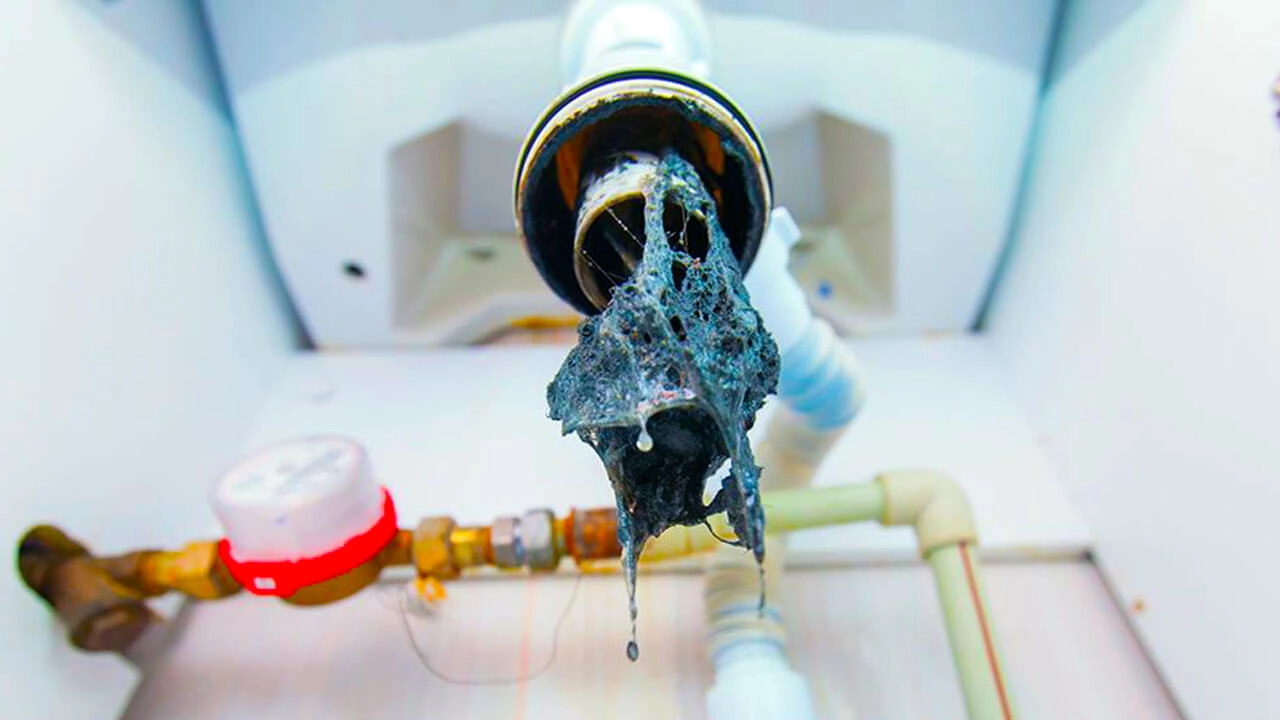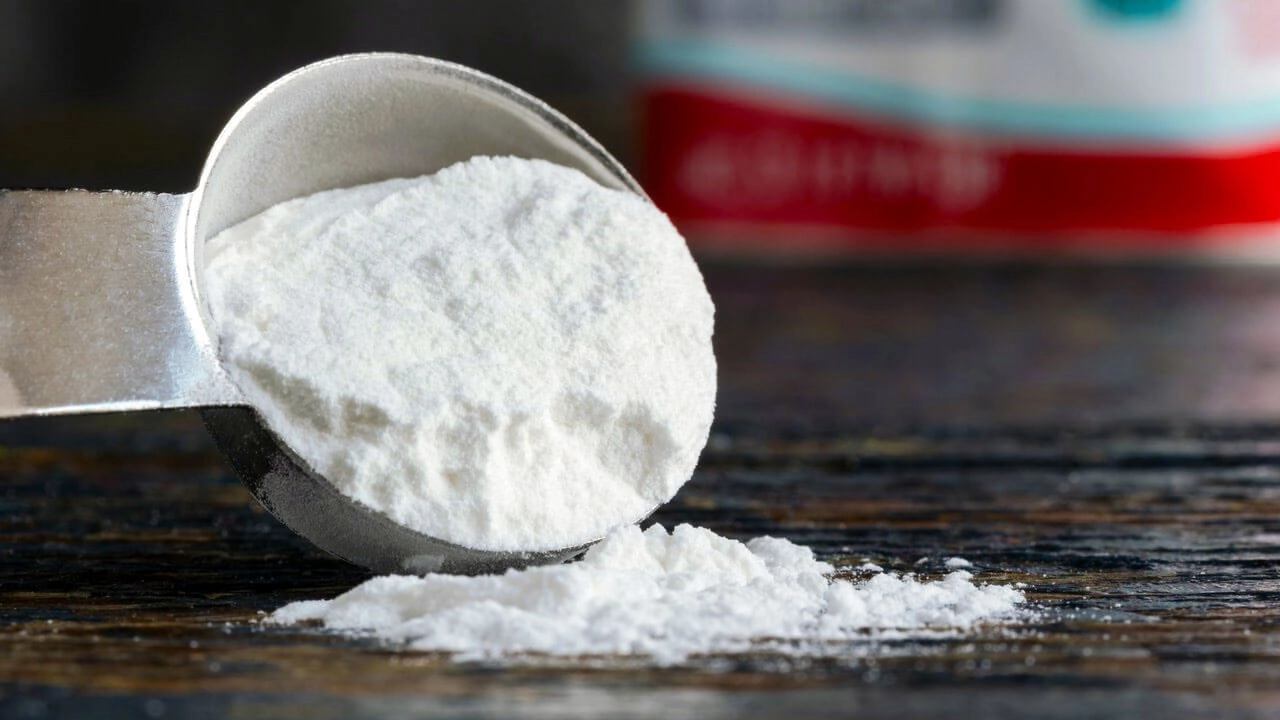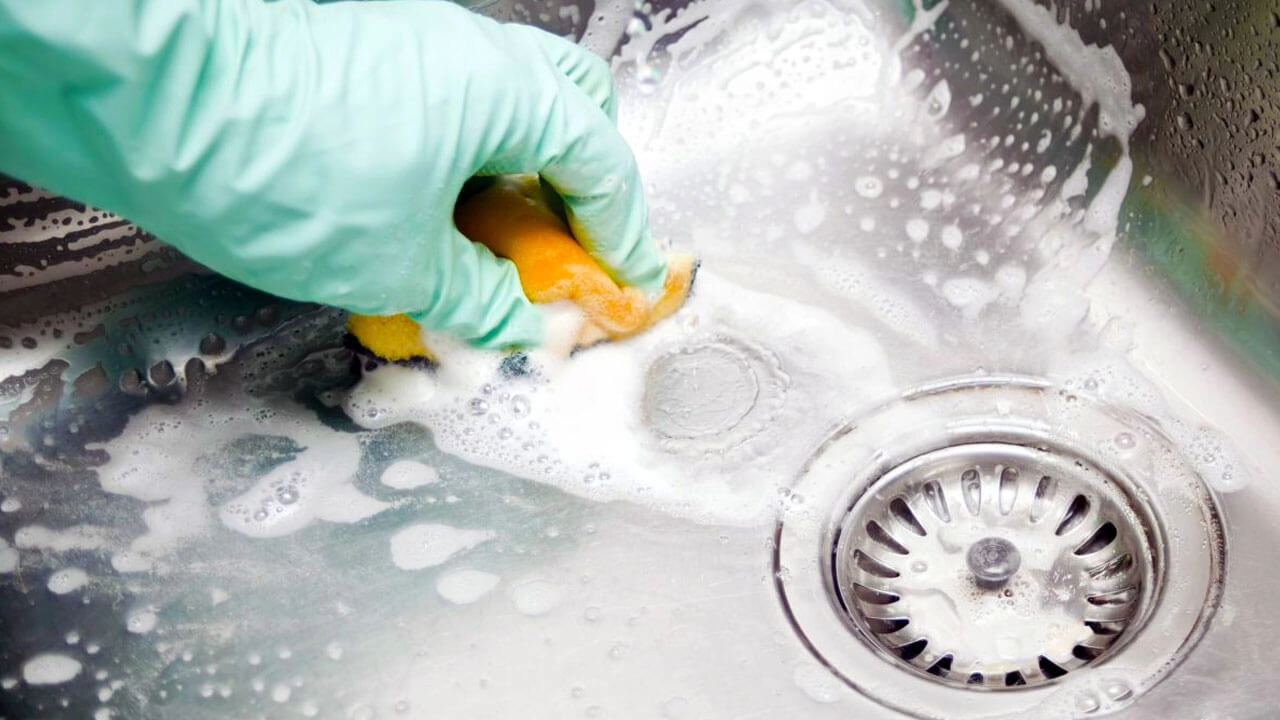We have all experienced the frustration that accompanies drain blockage or slow drain at some point in time.
Despite using a drain cover, tiny objects may filter through the mesh and into the pipeline, which could have disastrous effects in the long run. As the residue keeps piling up, the diameter of the pipes decreases, meaning there is hardly enough room for water to flow.
The immediate response would be to call a plumber or a certified company, but they will not be guaranteed to arrive on time. And waiting would not be wise if it is a severe issue.
Therefore, we have dedicated today’s guide to providing homeowners with DIY drain maintenance tips. None of these methods is complicated, and they might help you clear a blocked drain quickly , reducing the need for renovations.
So, let’s find out the best way to do DIY drain cleaning and prevent frequent drain clogs!
Steps To Clear A Drain Pipe Blockage
Contrary to popular opinion, blocked drains are not common irrespective of the maze of drain pipes running across your home. Similarly, despite having numerous bathroom or kitchen appliances, they should not clog even after regular use.
Long story short, clogging is an abnormal situation that you need to address immediately . While it would be best to contact a professional service to clear the debris, there are a few things that you can do if the issue isn’t complicated.
So, read the following sections to find valuable tips that will help with DIY drain maintenance and prevent frequent clogging.

Flush The Drain
Sometimes the most straightforward methods are the most effective for drain cleaning. For instance, users can pour hot water down the drain pipes to remove all kinds of waste.
Flushing the drain helps unclog the pipes to ensure the uninterrupted movement of waste. Naturally, when the water flow decreases, the grease inside the pipes forms a tight wall with other materials to restrict movement.
If you fail to act soon, debris build-up will further reduce the pipes’ diameter until waste disposal reaches a standstill. This may be followed by irreparable damage or overflowing bathroom and kitchen appliances, leading to significant plumbing issues.
So, it would be best to have a customised drain cleaning guide to focus on maintenance and reduce frequent clogging . Regarding drains, let’s now look at the three most common pipe systems and how to take care of them.
1. Shower Drain
Think about this — you are having a refreshing shower when you notice the water draining slowly. Ignoring this problem will result in the shower drain overflow and a lengthy unclogging procedure.
You must note that shower drains don’t often clog, meaning the issue is pretty severe when they do . The most common contributor to clogs is hair and soap particles that form tiny balls of stubborn debris.
It would be best to install a filter to catch all unwanted substances for DIY maintenance to keep the drain clog-free. But despite that, if you encounter problems with water flow, call a professional plumber to deal with the issue.
2. Kitchen Sink Drain
The kitchen is the house’s focal point and experiences maximum daily footfall. Hence, keeping it clean, including the sink drain, is essential.
Keeping the kitchen sink clean takes quite an effort because all the debris passes through its pipe system from cooking to washing. Numerous items get stuck in the drain, including leftover food, soap, or vegetable bits, clogging it.
So, we suggest you dispose of the trash in the garbage, including scraped vegetable bits. This will free the pipes from chunks of waste and soap, allowing the water to flow unobstructed in your plumbing system.
In addition, refrain from pouring soups down the drain, as it leads to grease formation that sticks to the interior of the pipes. It would be best to focus on weekly maintenance by pouring hot water or a chemical solution to steer clear of plumbing issues.
3. Toilet Drain
One of the most challenging tasks in drain maintenance is looking after a toilet drain. The toilet clogs make your home inhospitable, meaning you cannot afford to take any chances.
The pipe is full of unwanted waste that is difficult for the toilet to flush most of the time. Numerous things can contribute to a blockage, from steel bits to kids’ toys. Trying to flush too much toilet paper may also cause a clog .
Therefore, it would help to dump facial cleaning papers like baby wipes. Also, pour hot water or chemicals into the pipes monthly to enhance their longevity. But if all else fails, you must call certified drain cleaners to remove the clogs .
Common Drain Cleaning Tools
Now that you know about some of the problems regarding drain cleaning let us highlight a few drain cleaning tools for your benefit. Two of the most common tools every home should have are a plunger and a snake drain auger.
The former is perfect for domestic purposes, and if you find the water draining slowly, use the plunger straightaway. Provided that the blockage isn’t severe, the plunger might be able to free the drainpipe without any hassle.
On the other hand, when the plunger is ineffective, you can turn to a snake drain auger to clear stubborn clogs .
Natural Drain Cleaners
For DIY drain maintenance, you can use homemade drain cleaners, which offer an efficient method of cleaning blocked drains. It saves you the cost of hiring a plumbing service without using harmful chemicals.

That said, we have shortlisted the five best natural cleaners by using baking soda as the common ingredient :
1. Baking Soda And White Vinegar
Baking soda and vinegar are one of the most common types of homemade drain cleaner. Combining these two substances may act as a powerful cleaning agent; no wonder plumbing services use this mixture for commercial purposes. You must pour half a cup of each product into the drains and let it rest for an hour.
You can then flush the drains with boiling water to remove the blockage.
2. Borax And Vinegar
You can use borax, baking soda, and vinegar to create a more potent mixture. While the quantity of baking soda remains the same, use 1/4 cup of borax and vinegar before flushing the drain with boiling water.
Wait for one hour, and then use hot tap water to wash away any residue.
3. Salt
Although unknown to many, salt is an effective cleaning agent against tough clogs. Add 1/2 a cup of baking soda and a similar amount of salt down the clogged drain; let it rest overnight.
The following morning, flush boiling water down the pipes to complete the process.
4. Lemon Juice
Lemon juice is another organic ingredient that proves beneficial for clearing a blocked toilet or sink . Although it is priced higher than vinegar, 1/2 a cup of lemon juice and baking soda may clear stubborn clogs.
It smells better, so all you need to do is let it rest for a while and then wash the drains with boiling water.
5. Cream Tartar
We have found that baking soda, salt, and cream tartar could free a blocked drain. Take a tightly sealed jar and pour two tablespoons of cream tartar, 1/2 a cup of baking soda, and 1/2 a cup of salt into it.
Then shake the jar to mix the ingredients and pour half the solution down the drain. After half an hour, you can wash the residue with boiling water, hopefully clearing the blockage.
Chemical Drain Cleaner
After exhausting all the abovementioned methods, you may use chemicals as a last resort. Be it plumbing services or ordinary citizens, using enzymatic cleaners is often the go-to option for many people simply because it does not require much effort.
However, they have a strong smell due to the use of lye and sulfuric acid, meaning you must wash the residue properly. Also, make sure to read the instructions thoroughly before getting to work.
You may even contact a plumbing service if you are unsure about using toxic substances. Nonetheless, it is practical and clears oil, paper, hair, and other residue in the sink or toilet.

Keeping Up With Your Drain Maintenance With DIY Methods
Are you confident you can clear a blocked toilet or other bathroom and kitchen appliances without calling a plumber?
We will leave you with this tip: carry out weekly maintenance, making the installations last longer . And whenever in doubt, you can refer to our guide for all the information. You can also use helpful tools like a drain stopper or drain snake (plumber’s snake). Remember to clean your drains regularly and keep small objects out of your plumbing system.
For professional drain cleaning services in Sydney and surrounding suburbs, speak to the team at Fixed Fast Plumbing .
See you soon, bye!